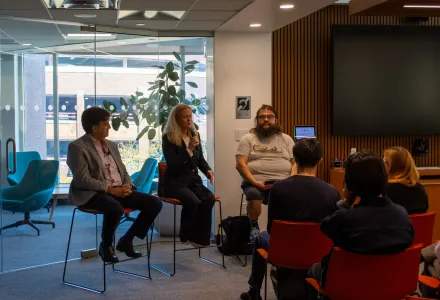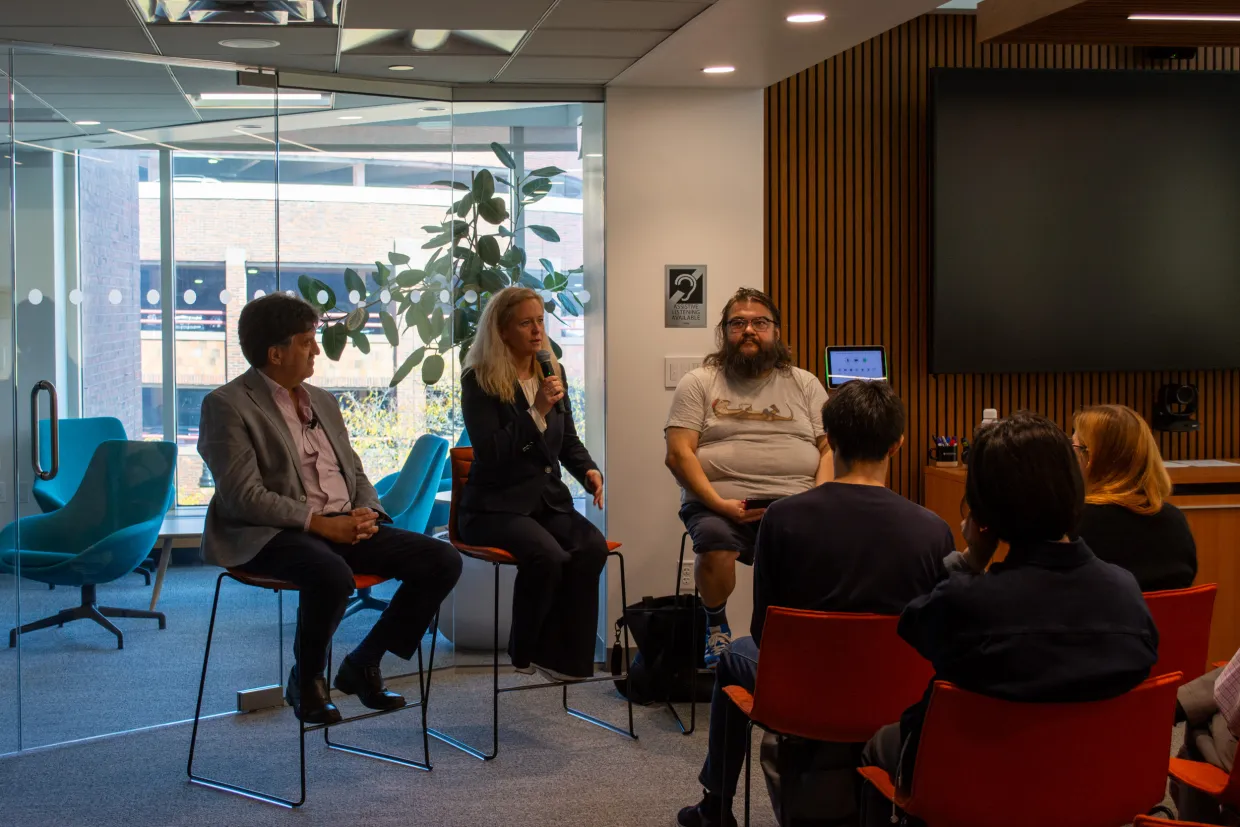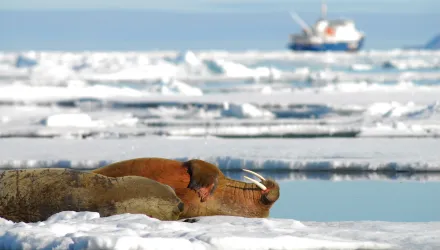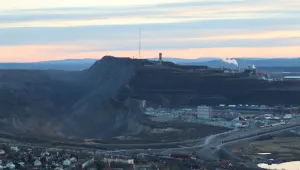
Amid shifting geopolitical dynamics in the Arctic, Iceland and Greenland are strengthening regional partnerships, advancing energy and security cooperation, and forging their own paths toward greater global engagement.
In an October 7 seminar, Arctic Initiative experts explored how Iceland and Greenland are navigating changing geopolitical and governance dynamics in the Arctic. Halla Hrund Logadóttir, Arctic Initiative Co-Founder and Icelandic Member of Parliament, and Hans Peder Kirkegaard, a Fulbright Fellow, shared insights into how their respective home countries are positioning themselves in a rapidly changing regional landscape. The conversation addressed evolving patterns of regional cooperation in the wake of Russia’s invasion of Ukraine and amid accelerating climate change. David Balton, Arctic Initiative Senior Fellow, moderated the discussion.
Watch the Recording
Read on for key takeaways raised by the panelists.
1. Shifting geopolitics and Russia’s invasion of Ukraine have disrupted longstanding Arctic cooperation.
From the end of the Cold War until Russia’s full-scale invasion of Ukraine, the Arctic “was a part of the world marked by a remarkable degree of international collaboration and cooperation,” according to Balton. Russia’s full-scale invasion of Ukraine altered the geopolitics of the region. Cooperation between Russia and the other Arctic countries on issues in the Arctic has largely – though not entirely – ceased. Traditional mechanisms of cooperation, such as the Arctic Council, have been disrupted. Halla Hrund Logadóttir summarized the shift: “The Arctic Council was once nominated for the Nobel Peace Prize for operating during times of conflict. But...Russia’s invasion of Ukraine changed everything.” The United States has shifted away from policies centered on mitigating climate change in the region, and President Trump has even raised the prospect of the United States acquiring Greenland.
2. Iceland and Greenland are pursuing greater visibility and agency in international affairs and multilateral organizations.
In the face of global uncertainty, Iceland and Greenland – two of the smaller states in the Arctic space – are finding ways to sustain Arctic cooperation and maintain momentum on key issues, from scientific research and climate cooperation to economic development and regional governance.
Greenland’s recent Foreign, Defense, and Security Strategy – titled Nothing About Us Without Us – underscores its commitment to expanding engagement within international and multilateral institutions. Drawing inspiration from Iceland’s example as a full NATO member without a standing military, Greenland has taken concrete steps to increase its visibility within NATO. For the first time, Greenland now has a representative seconded to the Danish delegation at NATO – a position formally titled Council Representation of the Kingdom of Denmark to NATO, seconded by the Government of Greenland. Greenland has also achieved another milestone with the appointment of a Greenlandic Arctic Ambassador in the Danish Ministry of Foreign Affairs, who simultaneously serves as Chair of the Senior Arctic Officials.
"What will the future look like? There’s a lot of moving pieces for Iceland and Greenland and for the world as a whole. But I think our small states will be aiming to punch above our weight in making sure that we develop in the right direction," said Logadóttir.

3. Iceland and Greenland are strengthening bilateral cooperation in energy, economy, and education.
Longstanding cultural and economic ties underpin a growing partnership between Iceland and Greenland. Iceland was the first nation to open a consulate in Greenland after the latter gained more autonomy from Denmark. Collaboration between both countries spans energy development, sustainable resource management, and education. Icelandic energy companies have contributed to hydropower projects in Greenland, while both nations are working to expand cooperation in tourism, fisheries, and innovation.
Beyond cooperation in infrastructure and commerce, both countries are focusing on strengthening youth exchanges and developing strong ties between the next generation. As Logadóttir shared, “We really need to focus on the younger generation. That’s where the future of our relationship lies.”
4. Small Arctic players are redefining sovereignty and security in a more contested Arctic.
The rapid transformation of the Arctic – driven by both climate change and shifting geopolitics – is leading smaller states to reassess the meaning of sovereignty and security. For Iceland, sovereignty is expressed through active international engagement rather than military might. Being independent means having the privilege to “participate in international collaboration,” said Logadóttir. That is why Iceland continues to deepen its cooperation within NATO and actively engages with the UN and other organizations.
“That’s one of the privileges of being a sovereign country – that you can help shape the world, but you can also enlarge your scope and increase the opportunities of your people through collaboration,” said Logadóttir.
For Greenland, sovereignty remains closely tied to self-determination, said Kirkegaard. “Sovereignty is not about self-sustainment – there is basically no country that is self-sustaining. Everyone is dependent on others, but you enter those dependencies with consent, by your own decision, and that makes you sovereign over your own country,” he explained.
Both countries face new security considerations. Yet despite these challenges, Iceland and Greenland continue to advocate for keeping the Arctic a region of constructive engagement and scientific collaboration. Their leadership demonstrates how small states can help preserve dialogue and cooperation admit shifting global dynamics.


